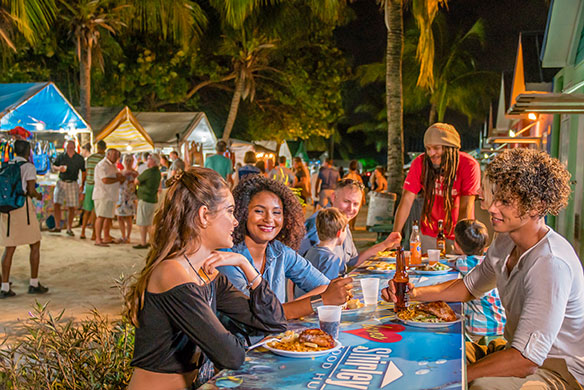Tourist Boards Look To Cuisine For An Edge

With the travel industry’s recovery starting to gather pace, many tourist boards are looking to differentiate themselves from rival destinations by focusing on their cuisine rather than traditional natural hot spots, cities, or coastal locations.
According to GlobalData’s Ads Database, Destination Marketing Organizations (DMOs) for Turkey, Malta, and Indonesia have focused on their national cuisine to entice new tourists. Marketing campaigns have included glossy images and short videos covering traditional cooking methods to boost cultural appeal.
The development of these marketing campaigns appears to be in response to growing demand for international cuisine and culinary experiences, with DMOs using this to gain a competitive advantage over rival destinations.
Craig Bradley, Associate Travel & Tourism Analyst at GlobalData, noted that: “DMOs appear to be reacting to a change in traveler sentiment towards gastronomy. Development of this trend has been brought on by the pandemic, which has helped broaden the palates of many tourists despite the closure of many restaurants during 2020 and 2021.”
Bradley said that: “Many restaurants needed to adapt to pandemic restrictions to survive, so they started selling meals via food delivery services such as Just Eat, Deliveroo and Uber Eats. These services have made international cuisines more accessible to consumers than ever before due to their low-touch service offering, intuitive smartphone apps, and efficient mobile payment systems. As a result, global awareness of alternative international cuisines has increased considerably enabling tourist boards to utilize this in attractive marketing campaigns to entice potential tourists.”
This trend is unlikely to slow either, with the food delivery market set to grow at a Compound Annual Growth Rate (CAGR) of 7% between 2021 and 2025, according to a 2021 GlobalData Food Insights & Trends report. As a result, millions of individuals will continue to sample new cuisines and flavors from their local restaurants.
According to a GlobalData Q4 2021 Global Consumer Survey, 47% of respondents said that they find the broader availability of cuisines the most appealing reason to consume food and drink outside of the home, highlighting the global appetite for experiencing new flavors. It is reasonable to assume that the same sentiment applies to tourists within a destination. Many will be enthusiastic about encountering local culture and customs, including food and drink.
And Bradley concludes: “In response to this development in consumer tastes, tourist boards have recognized an opportunity to use regional cuisine to create original marketing campaigns that can convey local culture within the tourist experience. This will be particularly attractive to niche tourists and millennial tourists, who typically search for more unique experiences.”
“However, it is important to note that linking destination marketing with gastronomic experiences is nothing new. Still, this type of promotional strategy is likely to grow in importance for DMOs as shown by Malta, Indonesia and Turkey, due to consumers becoming more exposed to culinary experiences,” he said.
Go to www.globaldata.com for more.


